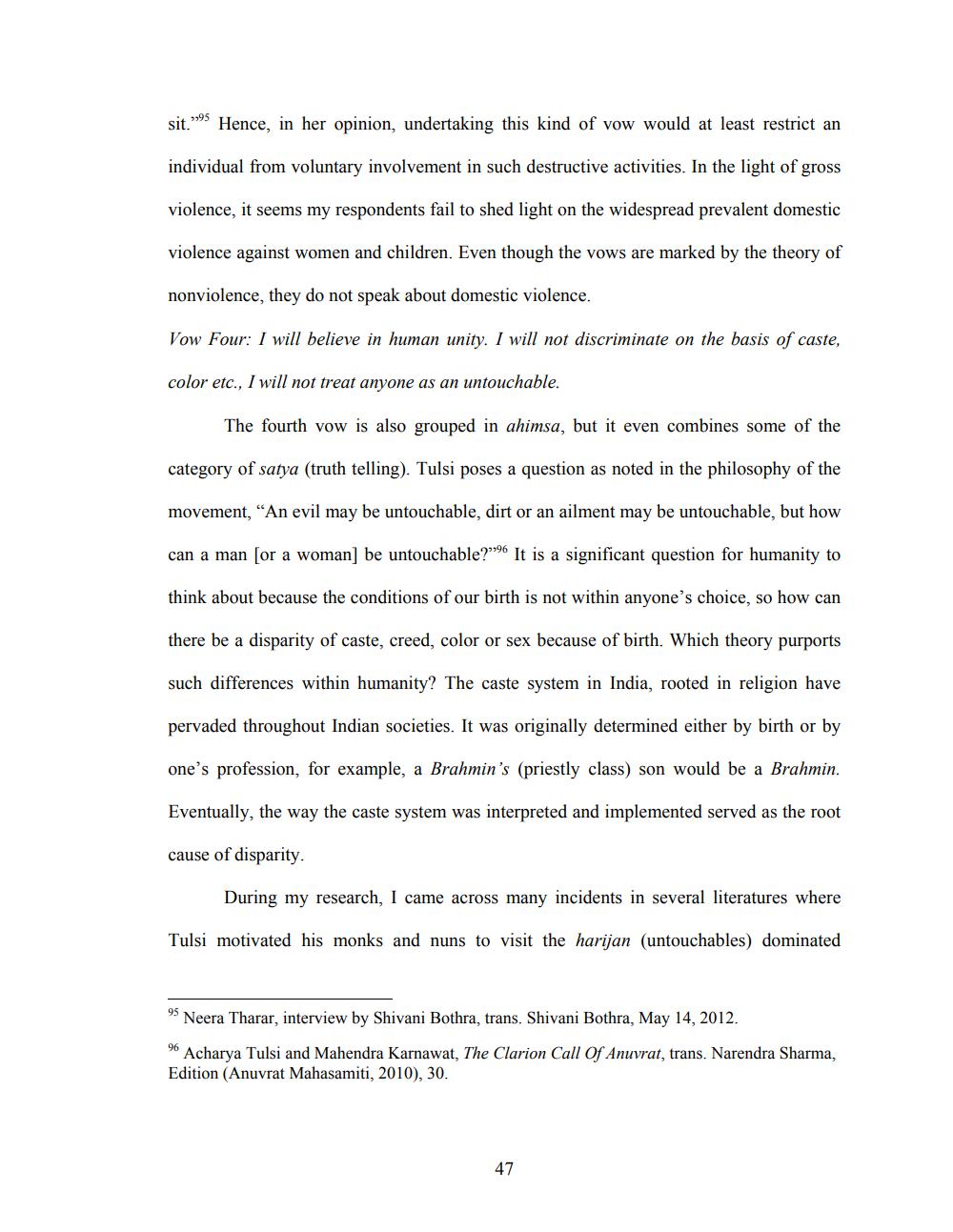________________
sit.
Hence, in her opinion, undertaking this kind of vow would at least restrict an
individual from voluntary involvement in such destructive activities. In the light of gross
violence, it seems my respondents fail to shed light on the widespread prevalent domestic
violence against women and children. Even though the vows are marked by the theory of
nonviolence, they do not speak about domestic violence.
Vow Four: I will believe in human unity. I will not discriminate on the basis of caste,
color etc., I will not treat anyone as an untouchable.
The fourth vow is also grouped in ahimsa, but it even combines some of the
category of satya (truth telling). Tulsi poses a question as noted in the philosophy of the
movement, “An evil may be untouchable, dirt or an ailment may be untouchable, but how
can a man (or a woman] be untouchable?" It is a significant question for humanity to
think about because the conditions of our birth is not within anyone's choice, so how can
there be a disparity of caste, creed, color or sex because of birth. Which theory purports
such differences within humanity? The caste system in India, rooted in religion have
pervaded throughout Indian societies. It was originally determined either by birth or by
one's profession, for example, a Brahmin's (priestly class) son would be a Brahmin.
Eventually, the way the caste system was interpreted and implemented served as the root
cause of disparity.
During my research, I came across many incidents in several literatures where
Tulsi motivated his monks and nuns to visit the harijan (untouchables) dominated
95 Neera Tharar, interview by Shivani Bothra, trans. Shivani Bothra, May 14, 2012. 96 Acharya Tulsi and Mahendra Karnawat, The Clarion Call Of Anuvrat, trans. Narendra Sharma, Edition (Anuvrat Mahasamiti, 2010), 30.




